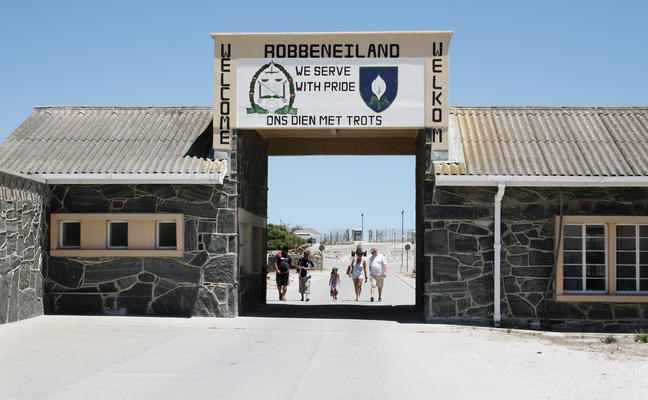For nearly 400 years, Robben Island, which is 12 kilometres from Cape Town, was a place of banishment, exile, isolation and imprisonment. It is flat and only a few metres above sea level, as a result of an ancient erosion event. It was here at Robben Island that rulers sent those regarded as political troublemakers, social outcasts and the unwanted of society. It was also used as a post office, a grazing ground, a mental hospital and an outpost.
Nobel Laureate and former President of South Africa Nelson Mandela was imprisoned there for 18 of the 27 years he served behind bars before the fall of apartheid. To date, three former inmates of Robben Island have gone on to become President of South Africa: Nelson Mandela, Kgalema Motlanthe, and former president Jacob Zuma.

Robben Island is an island in Table Bay, Western Cape. Since the end of the 17th century, Robben Island has been used for the isolation of mainly political prisoners. The Dutch settlers were the first to use Robben Island as a prison. Its first prisoner was probably Autshumato in the mid-17th century.
After a failed uprising at Grahamstown in 1819, the fifth of the Xhosa Wars, the British colonial government sentenced African leader Makanda Nxele to life imprisonment on the island. He drowned on the shores of Table Bay after escaping the prison.
During the apartheid years Robben Island became internationally known for its institutional brutality. The duty of those who ran Robben Island and the Robben Island prison was to isolate opponents of apartheid and to crush their morale. Some freedom fighters spent more than a quarter of a century in prison on Robben Island for their beliefs.
Today, however, Robben Island also tells us about victory over Apartheid and other human rights abuses: 'the indestructibility of the spirit of resistance against colonialism, injustice and oppression'. The image we have of Robben Island today is as a place of oppression, as well as a place of triumph. Robben Island has not only been used as a prison. It was a training and defence station in World War II (1939-1945) and a hospital for leprosy patients, and the mentally and chronically ill (1846-1931).

Since 1997 Robben Island has been a museum. The museum on the Island is a dynamic institution, which acts as a focal point of South African heritage. The Robben Island Museum runs educational programmes for schools, youths and adults, facilitates tourism development, conducts ongoing research related to Robben Island and fulfils an archiving function.

